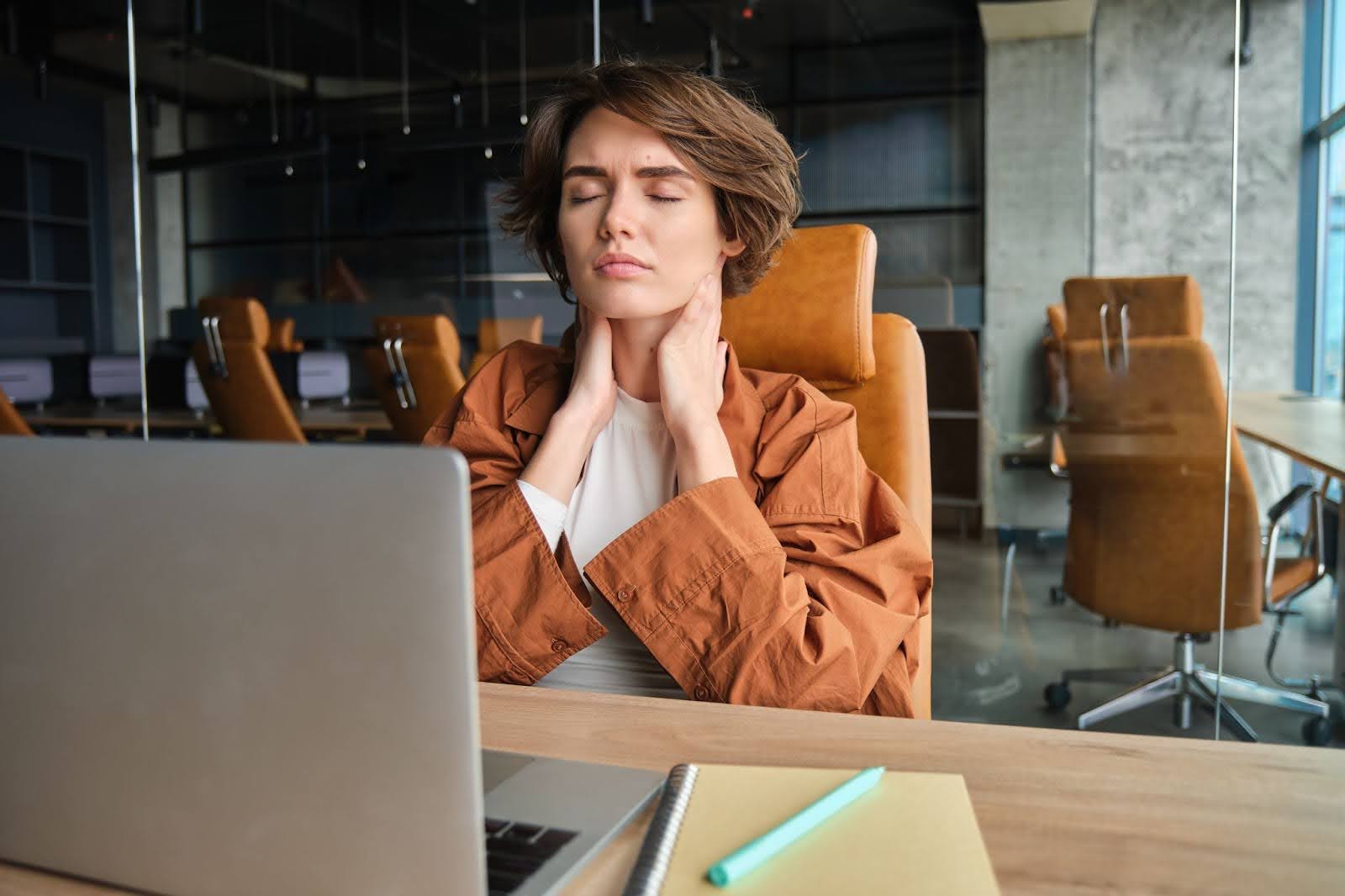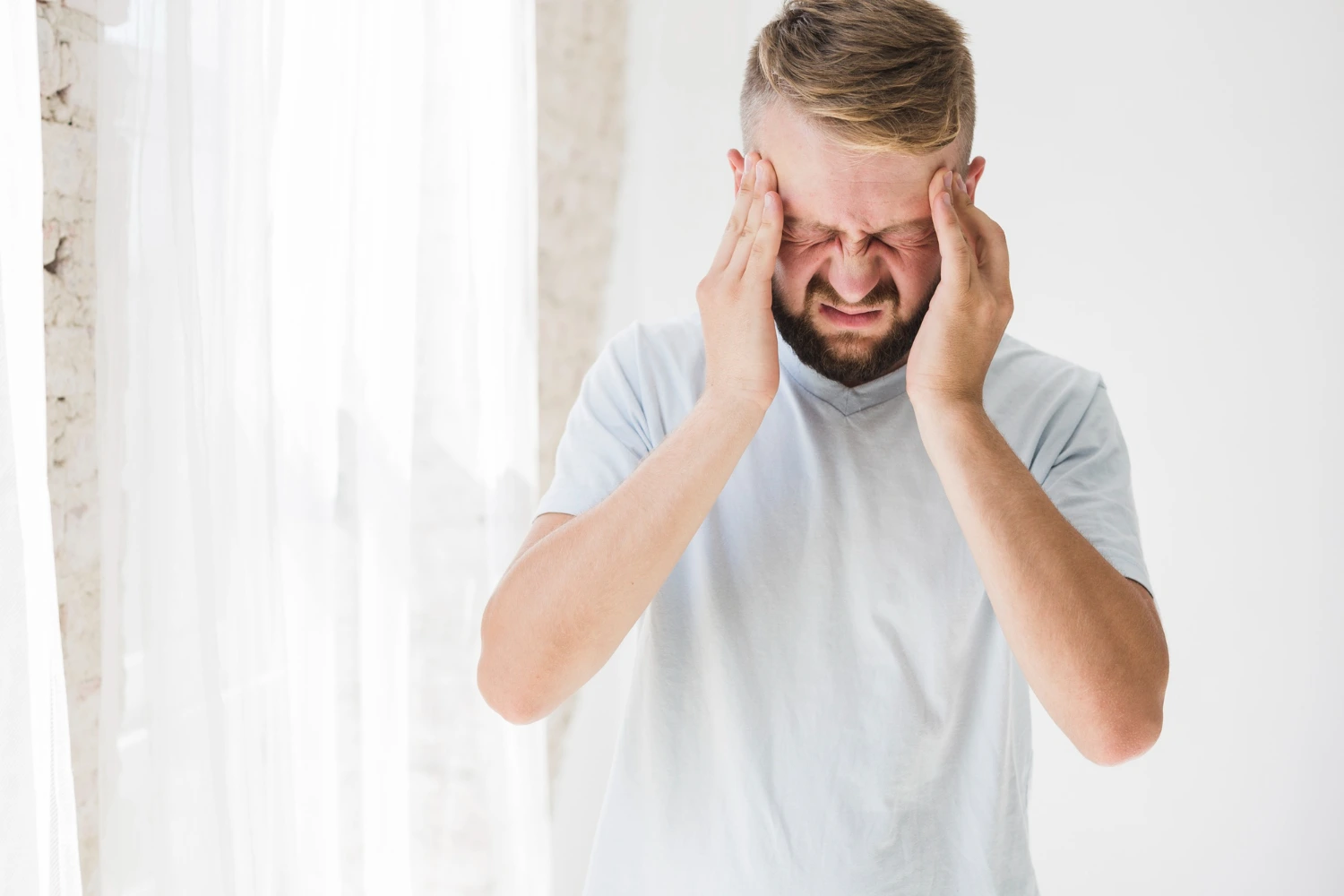Tinnitus, commonly described as a persistent ringing or buzzing in the ears, affects millions worldwide [1]. Many individuals wonder how to stop tinnitus or if tinnitus can go away on its own, and while a definitive tinnitus cure is still being researched, various treatments can help manage and reduce symptoms.
Tinnitus Test And Diagnosis
Correct diagnosis of tinnitus is crucial to effectively treating the noise and achieving relief. Healthcare professionals employ various methods to assess the condition and determine the underlying cause. These tests help in understanding the severity of tinnitus and guiding appropriate treatment options.
Methods Used for Tinnitus Diagnosis:
Hearing Tests (Audiometry) – Audiologists conduct pure-tone audiometry to evaluate hearing ability. This test helps determine if hearing loss is associated with tinnitus.
- Hearing Tests (Audiometry) assess hearing loss related to tinnitus using pure-tone audiometry.
- Tinnitus Symptom Surveys evaluate the severity, duration, and impact of tinnitus on daily life. Patients describe symptoms such as ringing, buzzing, clicking, hissing, whooshing, pulsing, and ear fullness to help identify underlying causes and tailor treatment.
- Tympanometry examines middle ear function, detecting issues like fluid buildup or eardrum perforations that may contribute to pulsatile tinnitus treatment.
- Similarly to Tympanometry, Otoacoustic Emissions (OAEs) measure inner ear sound waves to assess cochlear health and pinpoint potential hearing loss associated with tinnitus symptoms.
- Imaging Tests (MRI/CT scans) are recommended for pulsatile tinnitus, helping identify vascular abnormalities or tumors that may be causing the condition.
- Frequency Matching Tests determine the pitch and loudness of tinnitus, aiding in tinnitus sound therapy by customizing sound-based treatments.
- The Tinnitus Handicap Inventory (THI) measures the emotional and psychological impact of tinnitus, helping audiologists develop personalized tinnitus relief strategies.
These diagnostic methods ensure that tinnitus remedies and treatments are tailored to the patient’s specific condition.
Tinnitus Treatment
While a definitive tinnitus cure remains elusive, various approaches are used to treat tinnitus or provide significant tinnitus relief including our innovative Moore MyoWorx Tinnitus Treatment Approach.
Moore MyoWorx Tinnitus Treatment Approach
The Moore MyoWorx approach targets the neuromuscular system to alleviate tinnitus symptoms by reducing muscle tension in the neck, jaw, and shoulders. This method improves nerve function and blood circulation, which can help reduce tinnitus perception and provide lasting tinnitus relief. It is particularly beneficial for pulsatile tinnitus treatment, as it enhances oxygen flow to the ears, addressing circulation-related tinnitus.
Unlike conventional tinnitus medication, this approach focuses on the root cause rather than just symptom management. It can be combined with tinnitus sound therapy, relaxation techniques, and lifestyle adjustments for maximum effectiveness. Ideal for those with TMJ disorders, neck injuries, or chronic muscle tension, the Moore MyoWorx method offers a non-invasive, holistic tinnitus treatment.
Tinnitus Medication
Currently, no FDA-approved medications specifically cure tinnitus. However, certain drugs can alleviate associated symptoms [2]:
- Antidepressants: Medications like amitriptyline may help reduce tinnitus severity in some individuals.
- Anti-anxiety Drugs: Benzodiazepines can alleviate anxiety linked to tinnitus but are generally prescribed with caution due to potential dependency.
Do tinnitus ear drops work?
While tinnitus ear drops are often marketed for relief, most are ineffective unless tinnitus is caused by an ear infection or excessive earwax buildup. If the underlying cause is inner ear damage, oral medications, and other therapies are usually more beneficial.
It’s essential to consult a healthcare provider to determine the best drugs for tinnitus management tailored to individual needs.
Can tinnitus go away by itself?
Tinnitus can go away by itself, especially if caused by temporary issues like earwax buildup or loud noise exposure. However, persistent symptoms may require tinnitus treatment. For ongoing cases, consult a doctor for a proper tinnitus diagnosis and explore how to treat tinnitus effectively.
Sound Therapy for Tinnitus Relief
Sound therapy involves using external sounds to mask or alter the perception of tinnitus. This can be achieved through:
- White Noise Machines: Devices that produce ambient sounds to cover the tinnitus.
- Hearing Aids: Amplifying external sounds can make tinnitus less noticeable, especially in individuals with hearing loss.
- Customized Sound Therapy: Tailored sounds designed to match the specific frequency of an individual’s tinnitus.
Complete silence can make tinnitus symptoms feel more pronounced, as the brain focuses more on internal noises. This is why white noise machines, soft background music, or tinnitus sound therapy can be highly effective in reducing discomfort. These methods can provide significant tinnitus relief, especially when combined with other treatments.
How to Get Rid of Tinnitus with Lifestyle Adjustments
Certain lifestyle changes can help reduce tinnitus symptoms:
- Stress Management: Practices like yoga, meditation, and deep breathing exercises can alleviate stress, which often exacerbates tinnitus.
- Dietary Modifications: Reducing caffeine and alcohol intake may help, as these substances can worsen tinnitus in some individuals.
- Regular Exercise: Physical activity improves blood circulation, which can be beneficial for ear health.
Alternative Tinnitus Remedies
Exploring additional treatments can be a helpful approach:
- Acupuncture: Some individuals find that acupuncture reduces tinnitus symptoms, though scientific evidence is limited. [3]
- Herbal Supplements & Magnesium: Ginkgo biloba, zinc, and magnesium have been suggested to support tinnitus relief by improving inner ear function and blood flow. Magnesium, in particular, is known to play a role in nerve signal transmission, which may help lessen tinnitus perception. [4]
How Is Tinnitus Treated in Traditional Chinese Medicine?
Traditional Chinese medicine for tinnitus treatment includes a combination of acupuncture, herbal remedies, and acupressure to improve blood circulation.
Home Remedies for Tinnitus
Simple home remedies can also be beneficial:
- Sound Machines: Using a fan, humidifier, or white noise machine can help mask tinnitus during sleep.
- Ear Protection: Avoiding loud environments and using earplugs can prevent further ear damage.
- Hydration: Staying well-hydrated supports overall health and may alleviate tinnitus symptoms.
These practical steps can complement other treatments and contribute to symptom management.
Does Chewing Gum Help Tinnitus?
Chewing gum may help reduce tinnitus symptoms for those with TMJ-related tinnitus by promoting jaw movement, reducing muscle tension, and improving ear pressure regulation [5]. However, it is not a universal tinnitus cure.
Where Do You Press to Stop Tinnitus?
Applying gentle pressure to specific points like behind the earlobe, the temple, or the TMJ joint may reduce tinnitus perception by improving blood circulation and releasing muscle tension. This technique is particularly useful for muscle-related tinnitus relief.
What Can Untreated Tinnitus Lead To?
Untreated tinnitus can worsen hearing loss, sleep disturbances, and anxiety, affecting daily life. It may lead to chronic stress and make tinnitus treatment more difficult.
What Is the 10-Second Technique to Stop Tinnitus?
Placing palms over the ears and tapping the back of the head with fingers can create vibrations that may briefly reduce tinnitus perception. While not a tinnitus cure, this technique may offer short-term relief.
Do’s and Don’ts for Tinnitus
Do’s for Tinnitus:
Managing tinnitus requires the right strategies and lifestyle adjustments. Seeking professional help is essential, as early diagnosis can prevent worsening symptoms.
Protecting your ears, managing stress, exercising, and maintaining a magnesium- and zinc-rich diet can support tinnitus relief. Tinnitus sound therapy, like white noise machines or hearing aids, can also help manage symptoms.
Don’ts for Tinnitus:
Ignoring tinnitus can make it worse. Avoid self-medicating, excessive caffeine, alcohol, or nicotine, as they can worsen tinnitus symptoms. Prolonged exposure to loud environments without protection can lead to permanent hearing damage, making tinnitus more severe. Relying solely on tinnitus medication without exploring sound therapy or lifestyle changes may limit relief.
By following these do’s and don’ts, you can take control of your tinnitus treatment and improve your quality of life.
Taking Control of Your Tinnitus Treatment
Managing tinnitus effectively requires a proactive approach. Early intervention and the right tinnitus treatment plan can make a huge difference in your quality of life.
If you’re struggling with tinnitus symptoms and looking for a targeted, non-invasive solution, the Moore MyoWorx Tinnitus Treatment Approach may be the answer. By addressing neuromuscular dysfunction, this treatment helps retrain your nervous system and improve circulation to reduce tinnitus perception. Take the first step toward lasting relief—learn more about Moore MyoWorx and book a consultation today!
References
- Cleveland Clinic: Tinnitus.
- National Library of Medicine: “Emerging pharmacotherapy of tinnitus”.
- National Library of Medicine: “Acupuncture for chronic nonpulsatile tinnitus: A randomized clinical trial”.
- IntechOpen: “Complementary and Alternative Treatments for Tinnitus”.
- John A. Garza DDS, LVIF, FIAPA, BSC: “Does Chewing Gum Affect TMJ?”.




